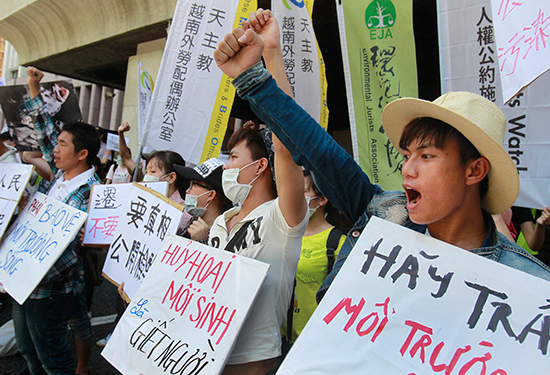Bangkok, January 26, 2017–Vietnamese authorities should unconditionally release videographer Nguyen Van Hoa and blogger Tran Thi Nga, the Committee to Protect Journalists said today.
“Vietnam should stop treating journalists like criminals,” said Shawn Crispin, CPJ’s senior Southeast Asia representative. “Nguyen Van Hoa and Tran Thi Nga should be freed immediately, and without charge.”
Hoa’s family on January 11 reported that the journalist, a videographer with the U.S.-government-funded Radio Free Asia’s Vietnamese language service, was missing from his home in the central coastal province of Ha Tinh, Rohit Mahajan, RFA’s director of public affairs, told CPJ in an email. On January 23 police informed Hoa’s family that the journalist was “temporarily detained” under article 258 of the penal code, which carries a maximum sentence of seven years in prison for “abusing democratic freedoms,” according to Mahajan. The RFA spokesman also said that police beat Hoa and confiscated his equipment, including a mobile phone and camera, while he was on assignment in November.
Hoa also published online videos of 2016 protests against an industrial accident that killed tons of fish and devastated fishing communities in Vietnam’s central coastal region in his capacity as a citizen journalist, Mahajan told CPJ. Hoa is detained in Ky Khang Commune, in Ha Tinh province’s Ky Anh District, Mahajan said.
On January 21, police in Vietnam’s northern Ha Nam province arrested blogger and rights activist Tran Thi Nga at her home, according to news reports. Nga, who blogs about human rights issues under the pen name Thuy Nga, is held on suspicion of violating article 88 of the penal code, which allows for a maximum sentence of 20 years in prison for “conducting propaganda against the state,” the reports said.
Vietnam held at least eight journalists behind bars when CPJ conducted its annual global census of jailed journalists on December 1, 2016. The country has consistently ranked among the 10 worst jailers of journalists in the world, CPJ research shows.
